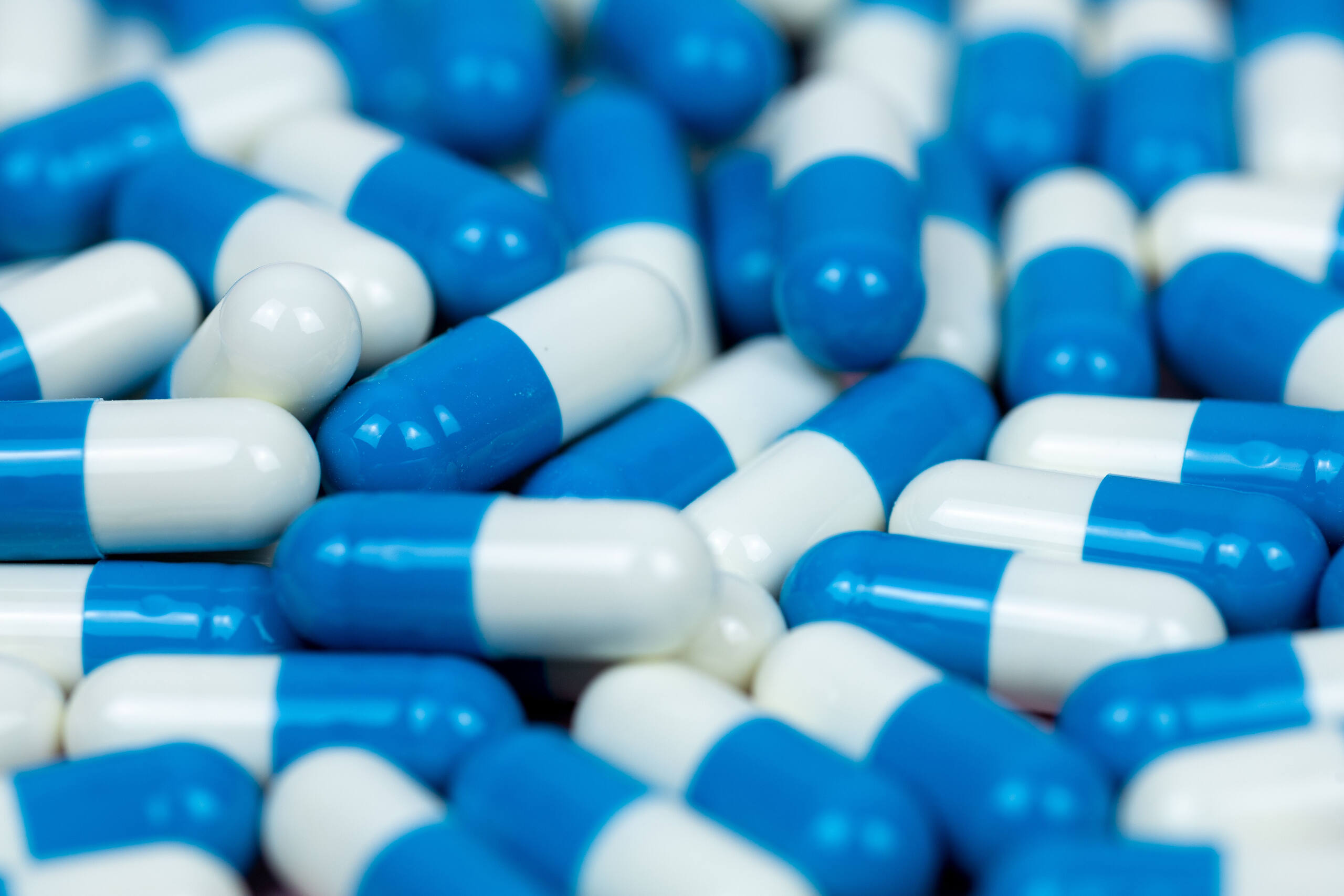Vyvanse is a CNS stimulant medication which is used to treat ADD attention deficit disorder and ADHD attention deficit hyperactivity disorder.
UK doctors prescribe Vyvanse under the name Lisdexafetamine, and it is a prescription-only medication primarily used to treat children and young adults. In some cases, it can also treat moderate to severe binge eating disorders in adults.
Amongst teenagers and young adults, there is a growing trend of abusing performance-enhancing medications in the UK leading to problems such as Vyvanse addiction. These drugs are commonly referred to as “smart drugs” as they increase a person’s focus and concentration. College students in the UK commonly misuse stimulants such as Vyvanse to heighten concentration and their euphoric effects.
Some people may also abuse Vyvanse to lose weight by obtaining it without a prescription.

Vyvanse in the UK
Vyvanse has been prescribed by the NHS in the UK under the name Lisdexamfetamine since 2012. It has been widely prescribed for ADD and ADHD but has suffered from shortages in supply to the UK, and several forms of the medication have been unavailable for periods of time.
It is prescribed less often than Ritalin, also known as Methylphenidate, although recent trials suggest that Vyvanse may be more effective in treating ADD and ADHD. However, supply shortages of Vyvanse are a significant cause for concern for prescribers in the UK.
Table of contents:
What is Vyvanse (Lisdexafetamine)?
Lisdexamfetamine is the active ingredient in the brand-name medication Vyvanse, which is a prescription-only medication used to treat symptoms of Attention Deficit Hyperactivity Disorder (ADHD).
The medication comes in varying dosages in chewable tablet form and oral capsule form.
This stimulant works by altering the balance of certain chemicals in the brain, such as norepinephrine and dopamine.
- Norepinephrine is a naturally occurring hormone and neurotransmitter that increases heart rate and blood pressure.
- Dopamine stimulates feelings of pleasure and reward.
By balancing these two chemicals, lisdexamfetamine helps people with ADHD with the following:
- Improves concentration at school or work
- It helps to control impulsive behaviours.
However, like most stimulants, Vyvanse may cause side effects and is also addictive.
Increased use can lead to tolerance, meaning more significant amounts of the drug are needed for the desired effect. This can result in physical dependence, wherein the brain and body cannot operate normally without the drug.
Why Vyvanse is Addictive
Much like any amphetamine-based drug, when abused, Vyvanse can lead to addiction. The drug can cause euphoria, alertness, and a feeling of well-being in general. This experience can be addictive for people taking it on prescription but also to people taking it illegally without ADD and ADHD.
Vyvanse works by increasing the amount of dopamine in the brain.
Dopamine is a neurotransmitter which acts as a reward to reinforce and motivate behaviour.
Individuals with attention-deficit hyperactivity disorder (ADHD) are particularly likely to benefit from Vyvanse due to their brains’ insufficient production of the neurotransmitter dopamine.
Vyvanse, as a long-acting stimulant, is less likely to be abused than shorter-acting stimulants such as Ritalin or Adderall. However, misuse or taking Vyvanse without a prescription will increase the risk of addiction.
Vyvanse is a Class B controlled substance in the UK and a Schedule II controlled substance in the United States. This means you cannot buy Vyvanse legally online or in person without a prescription in the UK.
Vyvanse and Dopamine
Any drug that increases the levels of dopamine within the brain has the potential to be addictive.
Vyvanse taken for a prolonged period has the following effects:
- The brain eventually stops producing its dopamine.
- The individual becomes reliant on the drug to feel any pleasure.
- The person must take Vyvanse to feel normal.
- Without the drug, they can experience lethargy, depression and irritability.
Although Vyvanse withdrawal symptoms will diminish over time and with continued abstinence, the initial period of stopping the drug can be highly challenging as the body and brain will crave it. This can lead to a vicious cycle of repeated relapse.
When a person is addicted, their withdrawal symptoms will be intensified due to the frequency and dosage they have been using. Their brain will also have rewired to seek Vyvanse as their primary source of dopamine.
Vyvanse Addiction and Abuse
The misuse or abuse of stimulants such as Vyvanse can lead to addiction and various dangerous side effects and health risks.
Symptoms of Vyvanse abuse include:
- Anorexia
- Increased heart rate and breathing
- Reduced appetite
- Impaired coordination
- Dizzyness
- Tremors
- Dehydration
- Hypersexuality
- Extreme weight loss
- Headaches
- Sexual dysfunction
- Nausea and vomiting
- Abdominal pain and diarrhoea
- Irritability and mood swings
- Restlessness
- Insomnia.
The potential health risks associated with Vyvanse addiction and abuse are significant, including dangerously high blood pressure and chest pain; heart-related problems such as tachycardia; dangerously low blood pressure; hallucinations; seizures; or stroke.
Signs of Vyvanse addiction
The signs of Vyvanse addiction can become apparent when a person starts to lose control of their use and spiral into addiction.
- Withdrawing from friends and family
- Mood swings, including euphoria, depression, anxiety and irritability
- Reckless, erratic or dangerous behaviour
- Weightloss and poor appetite
- Changes in sleeping habits
- Missing appointments
- Being unreliable
- Experiencing problems with education, work, personal relationships or the law
- Dilated pupils
- Changes in physical appearance and hygiene
This is by no means a comprehensive picture of what Vyvanse addiction looks like. However, any marked change in behaviour or appearance should not be ignored. It indicates that a person is struggling.
Someone who is addicted to Vyvanse or who is abusing it will experience a crash after use. During a crash, when the effects of the drug wear off, a person may become excessively sleepy, lethargic or irritated.
Vyvanse Overdose
Common symptoms of a stimulant overdose can include:
Signs of Vyvanse overdose include:
- Uncontrollable shaking
- Seizures
- Overactive reflexes
- Rapid breathing and heart rate
- Panic attacks
- Hallucinations
- Confusion
- Acute Anxiety
- Rhabdomyolysis – A severe medical condition that can be fatal or result in permanent disability
- High fever
- Nausea and vomiting
- Diarrhoea
- Shock
Consuming Vyvanse with alcohol or other drugs can lead to accidental overdose. Overdoses require immediate medical attention.
Vyvanse Addiction Treatment
In our vast experience of treating addiction, this illness doesn’t just happen by accident. More often than not, a person becomes addicted to a drug or alcohol as they cannot cope with life or their emotions. Because of this, it is essential to unearth and heal the root causes that are the driving force behind a person’s addiction. We achieve this through several different evidence-based therapies and, where necessary, medication.
When people develop a Vyvanse addiction, they rely on the drug to socialise, function and perform. Their sole purpose in life becomes centred around getting and taking the drug. Once the drug or drugs have been safely stopped, they often fear how they will manage without them.
This is why learning new, healthy coping strategies is paramount to recovery.
To safely and effectively overcome Vyvanse addiction after detox, organise the following:
- Detoxification
- Cognitive-behavioural therapy (CBT) assists individuals in modifying unhelpful thoughts and behaviours.
- Contingency management (CM) provides incentives and tangible rewards when individuals achieve their goals.
- The community reinforcement approach (CRA) aids individuals in making lifestyle adjustments that support abstinence.
- Motivational interviewing (MI) encourages individuals to explore and resolve ambivalence, fostering internal motivation for positive changes.
Inpatient rehab programmes include:
Treatment centres provide detoxification and therapy in a safe space within a clinical yet friendly setting.
- A full medical Vyvanse detox with 24/7 care
- A personalised treatment plan developed by a team of multidisciplinary professionals
- A comprehensive doctor assessment
- Dual diagnosis treatment
- Addiction education and relapse prevention
- Evidence-based therapies
- A structured discharge plan
- Ongoing support and aftercare
